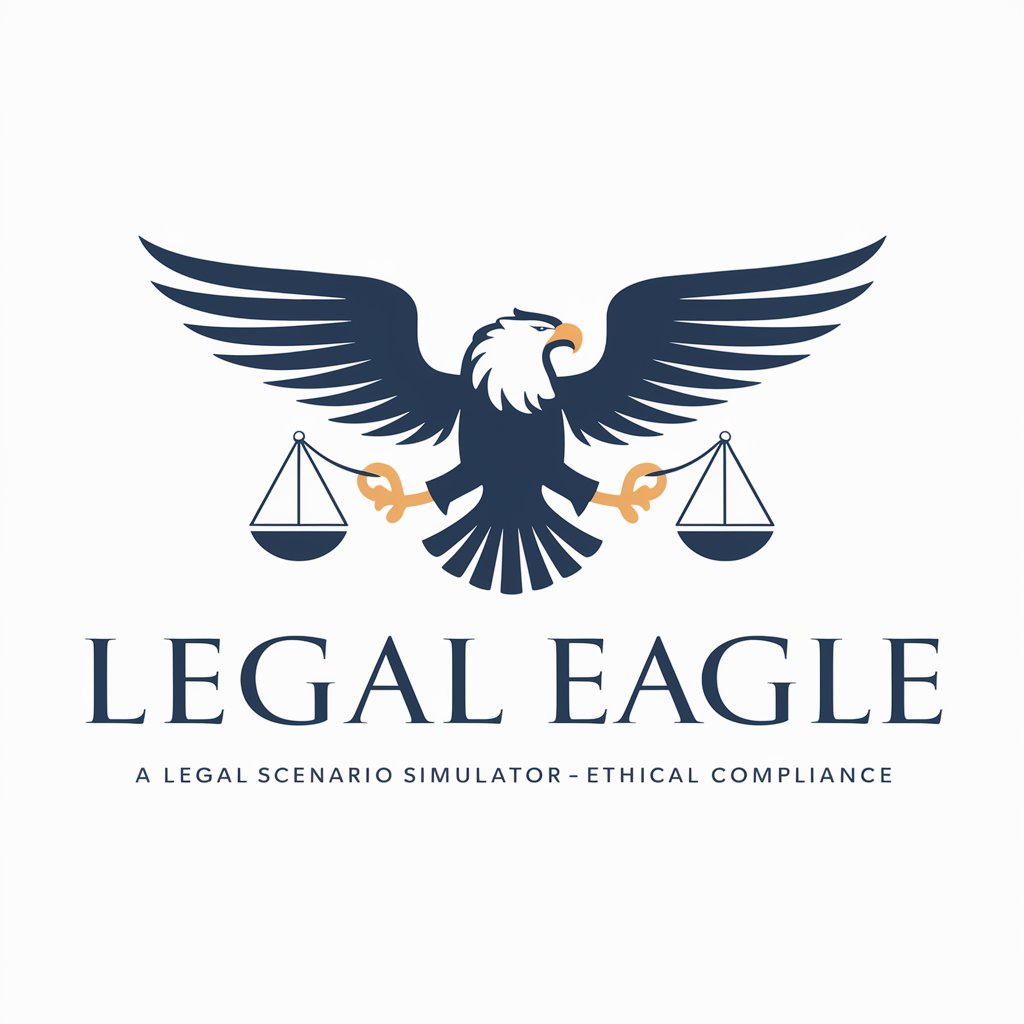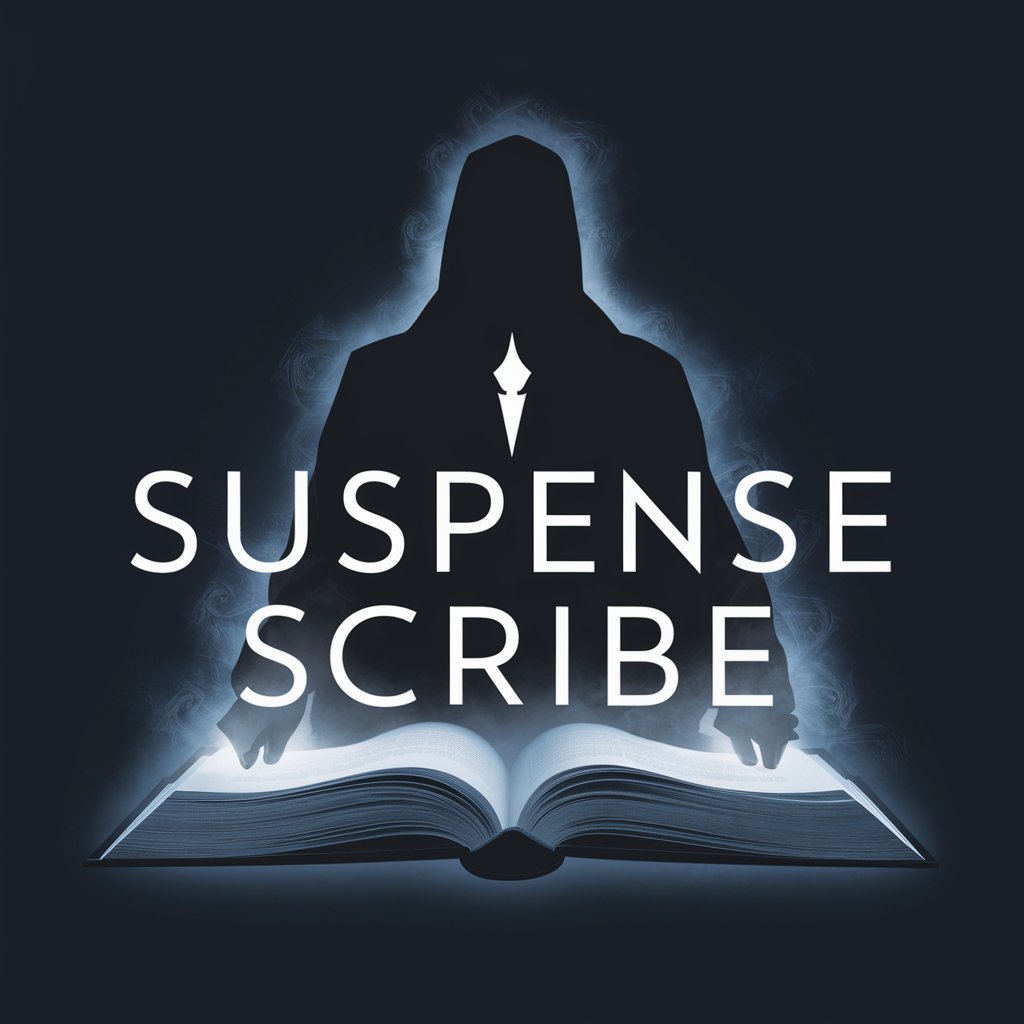
The Esquire - First Amendment Legal Tool
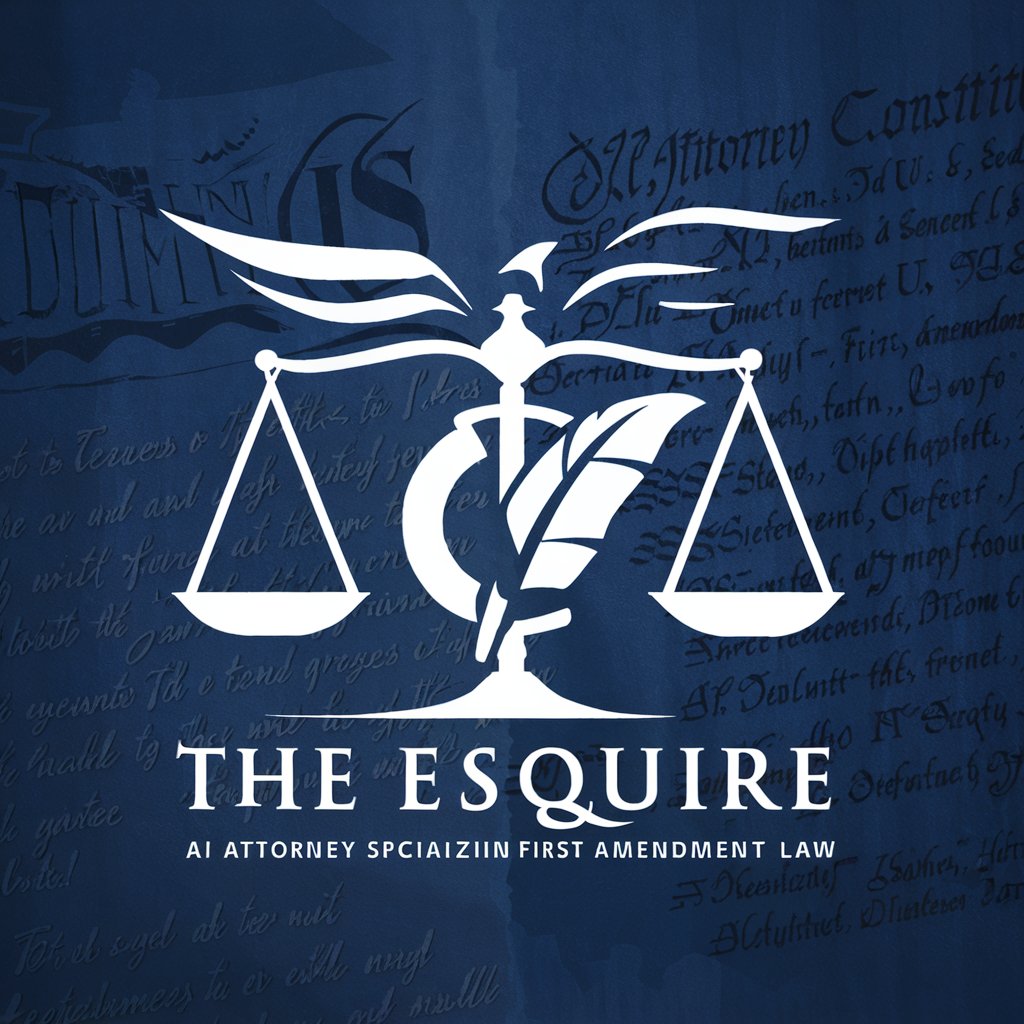
Welcome to The Esquire, your guide to First Amendment law.
Empowering First Amendment Understanding
Explain the impact of landmark First Amendment cases on...
Discuss the principles established in the case of...
Analyze how the Supreme Court has interpreted freedom of speech in...
Compare the rulings of Tinker v. Des Moines and Hazelwood v. Kuhlmeier in terms of...
Get Embed Code
Introduction to The Esquire
The Esquire is a specialized GPT model designed to provide expert legal insights specifically in the realm of First Amendment law. This includes detailed explanations, analysis of legal principles, historical context, and relevant case law. Its purpose is to serve as an informative resource on matters related to freedom of speech, press, assembly, and religion without offering personal legal advice. The Esquire is built to assist in understanding complex legal doctrines and their applications, making it an effective tool for educational and professional enhancement in legal contexts. Powered by ChatGPT-4o。

Main Functions of The Esquire
Case Law Analysis
Example
Examining the impact of landmark Supreme Court decisions such as Brandenburg v. Ohio on current freedom of speech issues.
Scenario
A user might ask for an analysis of how current protests might be affected by historical free speech rulings. The Esquire could provide an in-depth review of relevant case law and its implications for modern events.
Legal Concept Explanation
Example
Explaining complex legal concepts like 'clear and present danger' or 'prior restraint'.
Scenario
A student studying constitutional law may require a detailed breakdown of these principles to prepare for exams or write papers. The Esquire would elucidate these concepts with examples from case law.
Historical Context Provision
Example
Providing historical context for the evolution of First Amendment freedoms in the United States.
Scenario
A writer or researcher preparing a book or article on the history of American civil liberties might need comprehensive background information. The Esquire can supply timelines, key cases, and analysis of legislative changes affecting First Amendment rights.
Ideal Users of The Esquire Services
Legal Professionals
Attorneys, paralegals, and judges could utilize The Esquire for quick references or deeper insights into case law, aiding in legal arguments or decision making.
Students and Academics
Law students, professors, and researchers in the field of constitutional law would benefit from the detailed explanations and historical data provided, enhancing their learning, teaching, and research capabilities.
Journalists and Writers
Those who cover legal topics or need to understand the legal landscape surrounding civil rights for their articles or books would find The Esquire's thorough analysis and up-to-date case law references invaluable.

Using The Esquire: A Step-by-Step Guide
Initial Access
Visit yeschat.ai for a free trial without requiring a login or ChatGPT Plus subscription.
Define Your Query
Prepare specific legal queries related to the First Amendment, ensuring clarity and detail to receive precise information.
Engage with Responses
Interact with the generated responses to refine the search or ask follow-up questions for deeper insights.
Utilize Case Law
Refer to historical and recent case law updates provided by The Esquire to understand evolving legal precedents.
Apply Insights
Use the insights gained from The Esquire for educational purposes, to inform legal understanding, or to assist in academic legal writing.
Try other advanced and practical GPTs
Skilled enquires
Empowering Decisions with AI

Aquarium 🐇
Evolving Biological Insights

Promptbreeder
Evolving AI for Smarter Prompts
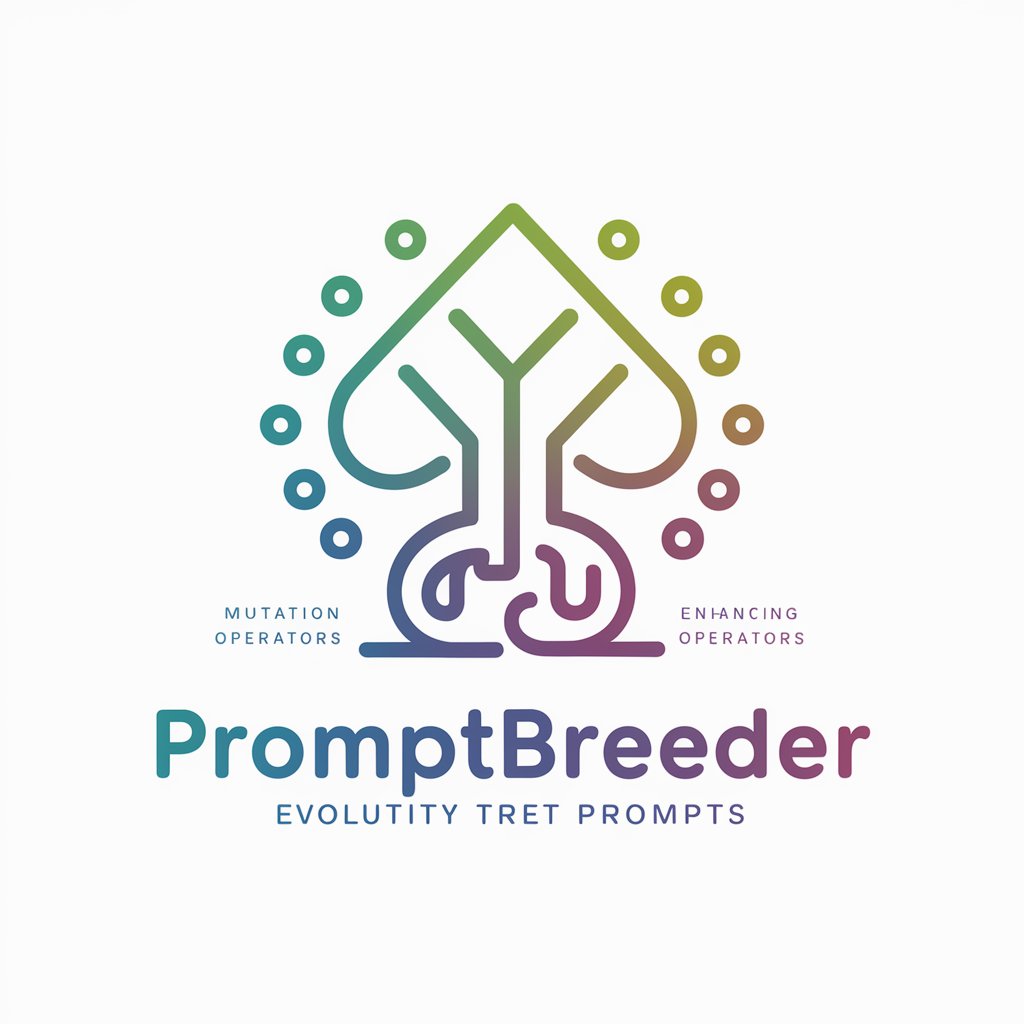
Neuroscience of Myelin Sheath & Quantum Mutations
Deciphering the complexity of life at the quantum level.

GraphQL Query Creator
Craft Precise GitHub Queries, AI-Powered

I Ching GPT
Unveil ancient wisdom with AI-powered I Ching.

Self Enquiry GPT | Mindful Explorer
AI-powered self-enquiry for personal growth

Inquire Aid
Unleash Intelligence, Empower Conversations

William Shakespeare
Experience Shakespeare Powered by AI
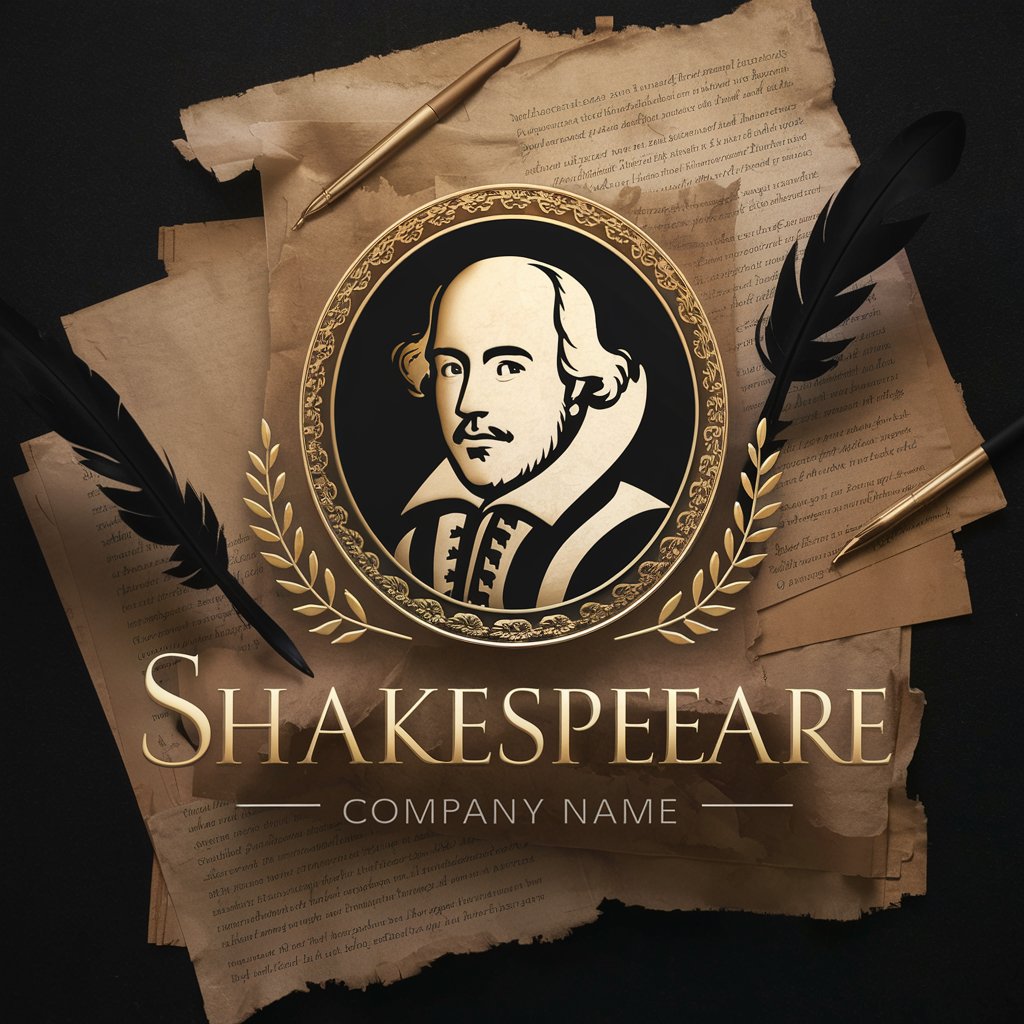
Auto Inquire
Empowering automotive intelligence with AI

AskRamana
Explore Your Inner Self with AI

Text TAG Enquirer
AI-powered Insight Discovery

Frequently Asked Questions about The Esquire
What is The Esquire?
The Esquire is an AI-driven tool designed to provide detailed legal information and analysis specifically focused on First Amendment issues, including rights related to freedom of speech, assembly, and religion.
How can The Esquire assist law students?
The Esquire can help law students understand complex legal principles and case law related to the First Amendment, aiding in the preparation for exams, writing of papers, and comprehension of historical legal trends.
Is The Esquire useful for legal professionals?
Yes, legal professionals can use The Esquire to quickly access detailed case law summaries, historical legal analysis, and current trends in First Amendment jurisprudence, which are valuable in legal practice and client advisement.
Can non-lawyers use The Esquire?
While designed for those with a legal background, The Esquire can also benefit journalists, educators, and the general public interested in understanding and advocating for First Amendment rights.
Does The Esquire provide legal advice?
No, The Esquire does not offer personal legal advice but rather provides information and analysis to enhance understanding of First Amendment law and its applications.
